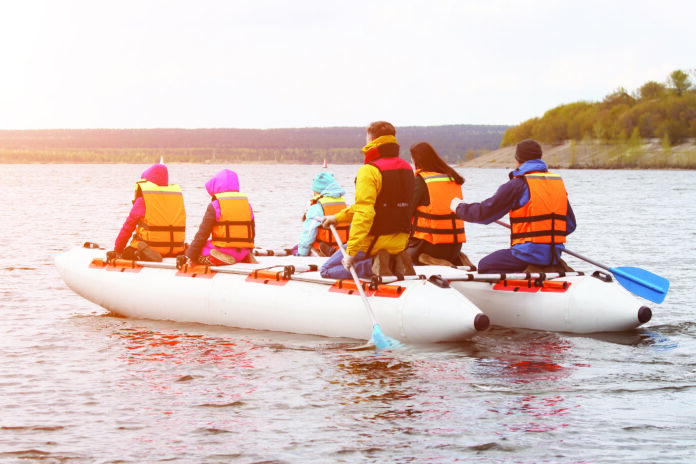By John Hall for Blue Mountain Town & Country Gazette
About 12 years ago a young boy and his grandmother went to the river to collect rocks. The young boy went into the river to swim, but couldn’t stand up to the water’s power and rapids. His grandmother went in to save him – she was reportedly a very good swimmer – but she was also pulled under and through the rapids and swept away. This is a local story and it’s a tragedy. But there are learnings to share. The little boy’s name was Nolan Ritchie.
Life-Shattering Grief
Out of their “life-shattering grief” Nolan’s mom and dad eventually came together with family and close friends in the community and created the Nolan Ritchie Staying Afloat Foundation. Their foundation is a nonprofit organization honoring the life of their child by bringing education and awareness of open water safety to the community, as well as providing life-saving vests to children in need of one. For more information, please visit the Foundation’s Facebook page.
Nolan’s mom and dad, Tiffany and Robert, graciously agreed to speak with me recently. In our conversation they shared critically important information that we should all pay close attention to before going in or near the water alone or with loved ones – especially children. Here are some of the things we discussed:
• “Life Jackets.” Those words were said multiple times during our conversation. Nolan’s parents could not stress enough the importance of wearing a life jacket, calling it the #1 thing to do whenever you go into, or get near open water like a river or ocean. “To go without one is the most foolish thing you can do.”
• “All accidental drownings can be prevented.” According to National Drowning Awareness Day, more than 236,000 people drown each year. According to redcross.org, drowning is actually the 2nd leading cause of unintended deaths for children 1-14 after motor vehicle crashes – and it is 100% preventable.
• “It can all happen so quickly.” According to Nolan’s mom, “If you are a parent or anyone else responsible for being a ‘water watcher,’ put down your phone! Keep your eyes where they need to be – it can all happen so quickly.”
Nolan’s dad addressed how a river is unpredictable, “It can be calm on the surface but the undertow can be vicious.” You can’t tell the depth of the water and you don’t know how the undercurrent will catch you and pull you under. It’s not like a swimming pool. For an inexperienced swimmer – someone who is not a “proficient” swimmer, there can be a tragic ending.
The Foundation as Resource
The Nolan Ritchie Staying Afloat Foundation is a significant resource for water safety information. For instance, here is information pulled from just two postings on the Foundation’s Facebook page:
The American Red Cross defines a *proficient swimmer* as one who can continuously swim 500 yards using breaststroke, backstroke, freestyle, and/or butterfly, and 5 minute float and tread. Only 56% of self-described swimmers meet the definition of water competent.
In another post, a reminder for “Water Watchers” when a child in the water is not a proficient swimmer: Provide “touch supervision” – in other words, be close enough to the child to reach the child at all times and pull them from the water.
When in the water, be safe. Wear a life vest.


